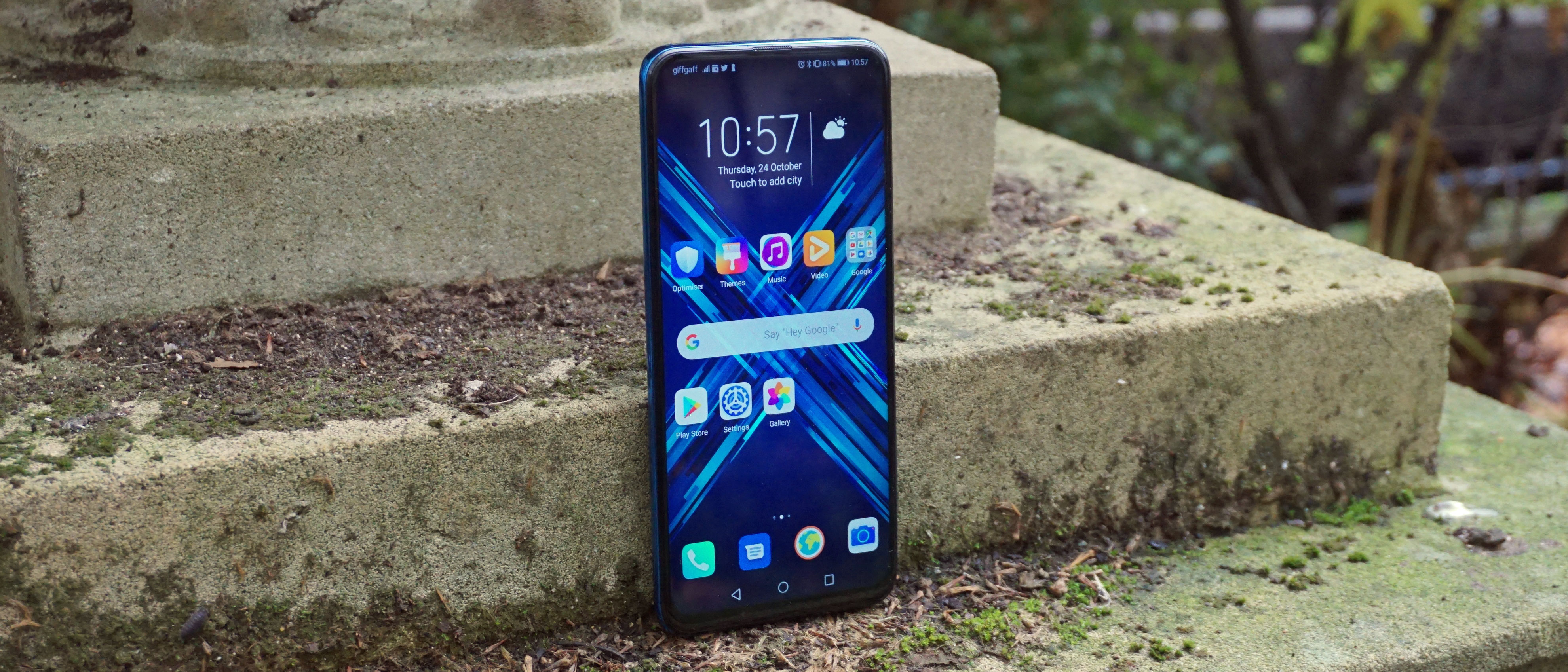Why you can trust TechRadar
Battery life
The Honor 9X has a 4,000mAh battery, which is pretty decent as smartphone batteries go, and you’re never going to have to worry about running out of power halfway through a day with it.
We found that no matter how we used the handset, whether it was just to check Instagram now and then, or for streaming music and playing games, it could last a full day of use with ease. In fact, with light use we could even get through two days without having to power up overnight, though we needed to turn off bluetooth and avoid media playback to get this result.
When we put the Honor 9X through our battery test, which involves playing a 90-minute video at full brightness with Wi-Fi on and accounts syncing in the background, the charge dropped from full to 82%, so a fairly large drop of 18%.
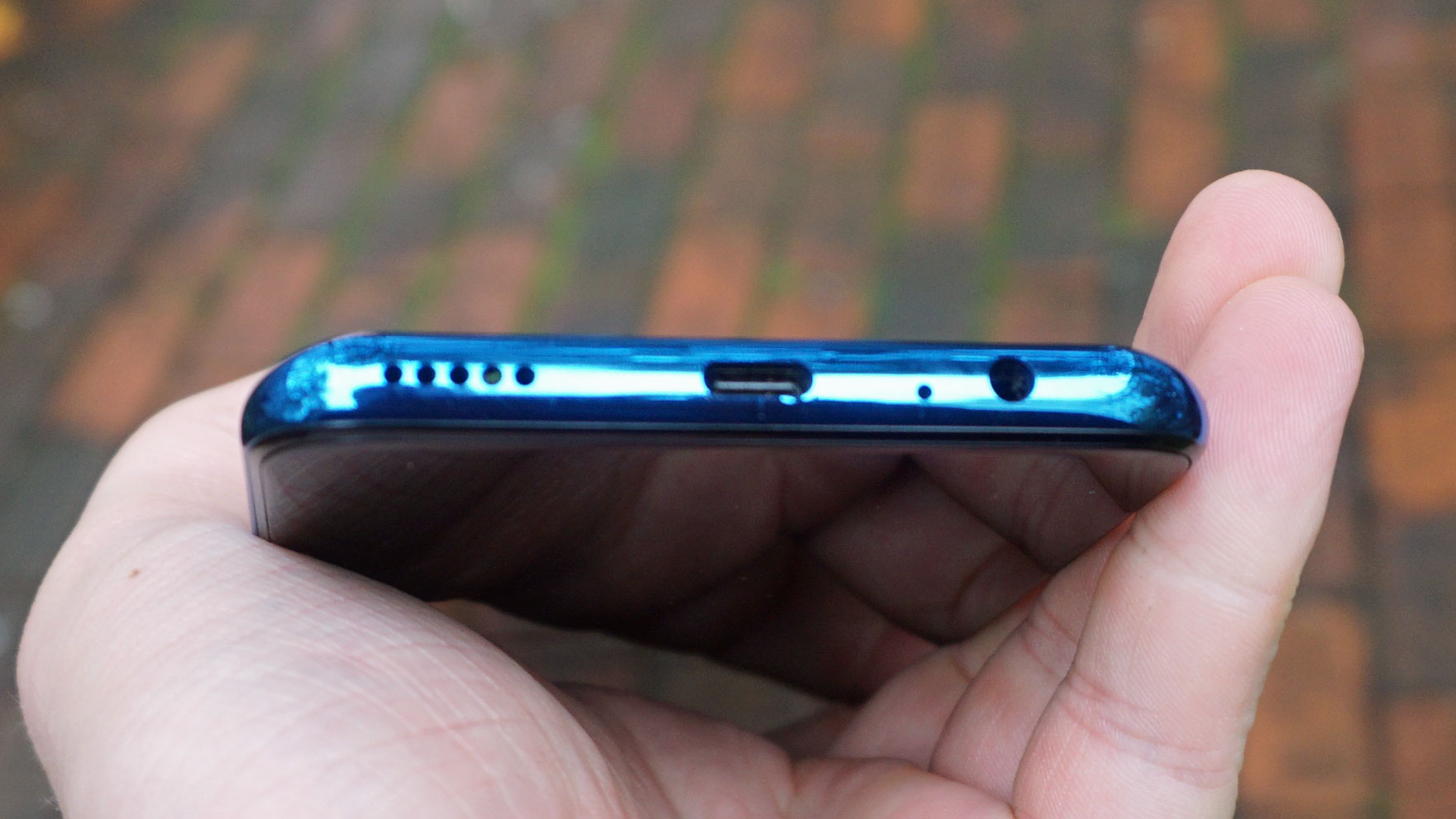
That isn’t the biggest battery drop we’ve seen in a smartphone, but it’s more than average, so clearly the device isn’t optimized for long streaming binges. Many of the Honor 9X’s competitors, which you can read about further on in this review, didn’t lose this much battery in the same test.
If there’s a downside to the large battery capacity, it’s charging speeds. There’s no fast-charging tech here like there is in some other Honor phones, and the charger that comes with the device seems to be in no rush to power up the handset.
When we charged the handset from empty to full, it took just over two hours. This isn’t a horrible timing, and people who have phones with microUSB or lightning ports might find this snappy, but current fast-charging tech can get a phone to power up in half this time.
Camera
Since Honor is a subsidiary of Huawei, we usually find devices from the company have pretty decent cameras; this isn’t the case with the Honor 9X though, as pictures we took with it felt decidedly ‘fine’ instead of the ‘great’ we’d expect from the company. Sure, the camera is a step up in terms of resolution from the Honor 8X, but there aren’t any huge new features.
The main rear camera is a 48MP snapper, which is joined by an 8MP sensor with an ultra-wide angle lens, and a 2MP depth assist camera for improved portrait shots.
Let’s start with the main camera. Pictures taken with this generally looked good, as they were bright and detail was captured fairly well. Autofocus was pretty quick for close-up pictures, however we did find that some shots looked fairly washed-out when we took them with the main camera.
Next is the ultra-wide snapper, which we had a few problems with. Firstly, there was notable distortion around the sides of ultra-wide pictures, which made some look a little bizarre. Also, ultra-wide snaps we took looked noticeably darker than standard wide-angle pictures, even if it was the same scene. This isn’t totally a bad thing, as ultra-wide pictures actually had richer colors, but it did lead to inconsistent snaps when varying between the lenses – and if you shoot a video which uses both, you’re going to find the colors changing constantly.


Finally there’s the 2MP depth assist camera, which slightly helps for portrait shots for creating accurate background blur. However, we remain unconvinced on the benefits of a portrait-centric sensor when there’s no telephoto lens as a result, which is slightly more common on smartphone cameras.
Without a telephoto or periscope lens for zoomed pictures, there’s no optical zoom, and a rather limited 6x digital zoom. Pictures taken at a zoom didn’t look awful, but since it’s quite a low max zoom, we found it easier just to take standard pictures and crop them ourselves.
There are some extra features and modes at play in the Honor 9X camera to enhance pictures you take – it’s not as wide a range of features as Huawei has been known to use, but it’s something.
The first is an ‘improved’ night mode, which takes low-light pictures with more detail and color. It works well, however pictures taken in this mode looked almost identical to pictures taken with the main camera when AI scene optimization is on, as that applies a similar effect without you having to hold your phone still for ages. In short, the night mode felt a little redundant thanks to software advancements.
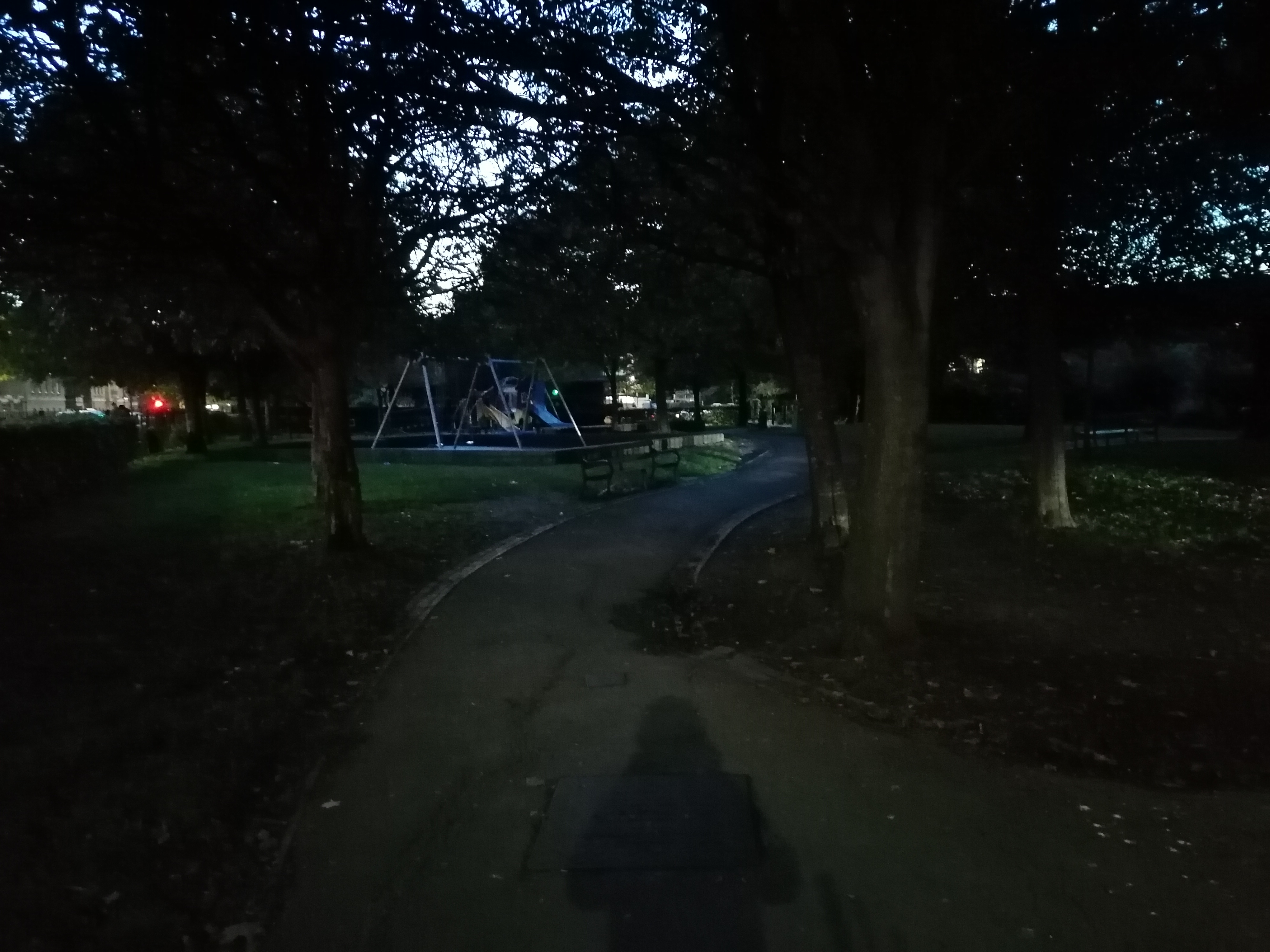
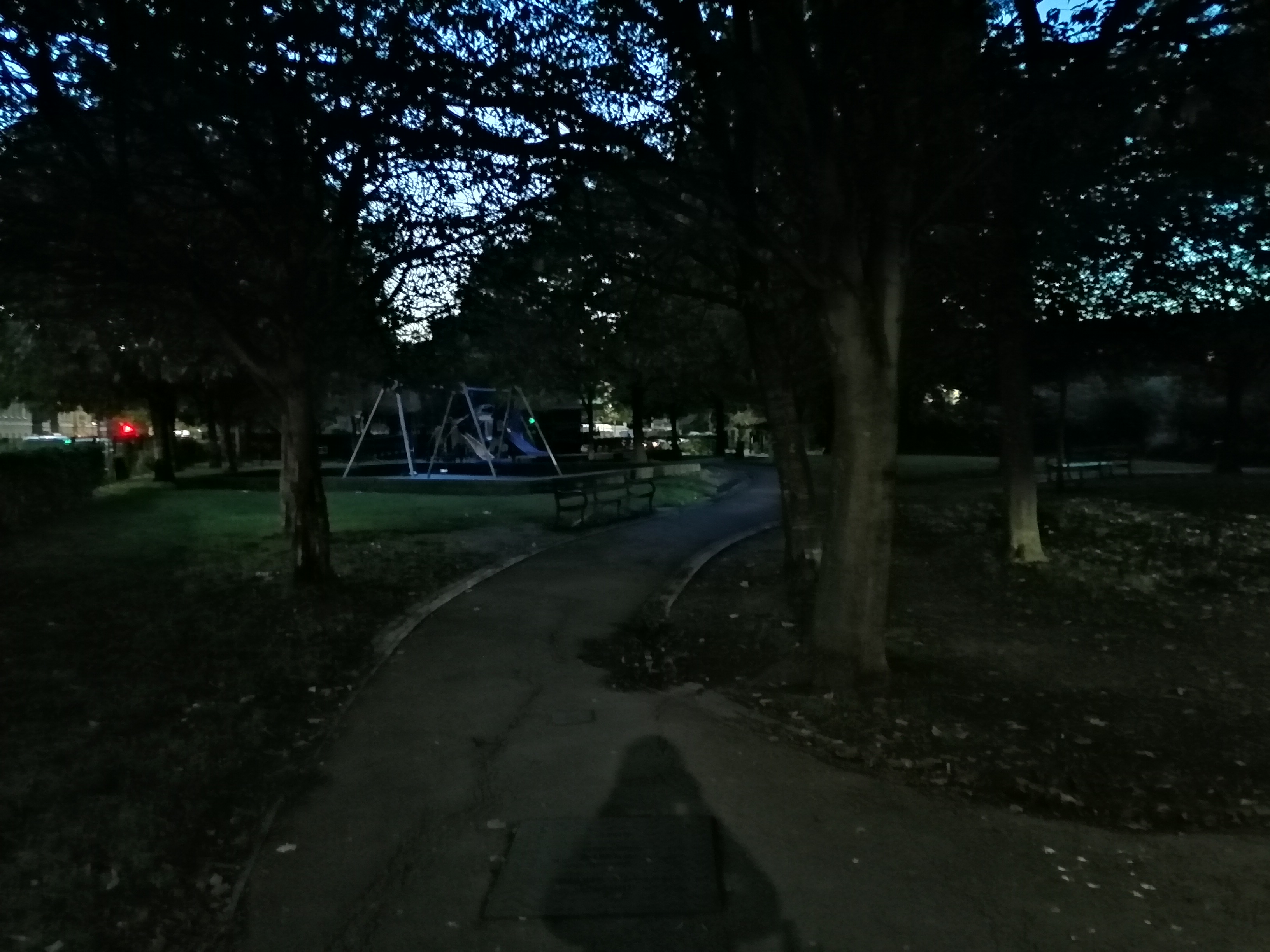
This AI photography mode is a treat, and it’s the saving grace of the Honor 9X’s camera. It optimizes pictures depending on the context, so if you’re taking a close or long-range picture, a snap of greenery or food, or a portrait of your pet, it knows, and can tweak various settings to take the best picture.
There are limited video recording options in the Honor 9X – you’ve got 720p / 30fps, 1080p / 30fps and 1080p / 60fps if you want to record in 16:9 aspect ratio, but if you want to record a 19.5:9 video you’re limited to 1080p / 30fps. There’s no 4K here, despite a comment in the options menu that says you can’t use the wide-angle lens in 4K.
It’s inadvisable to use the wide-angle lens for any video recording though, as due to the aforementioned color disparity, a video looks startlingly different when you switch between the lenses.
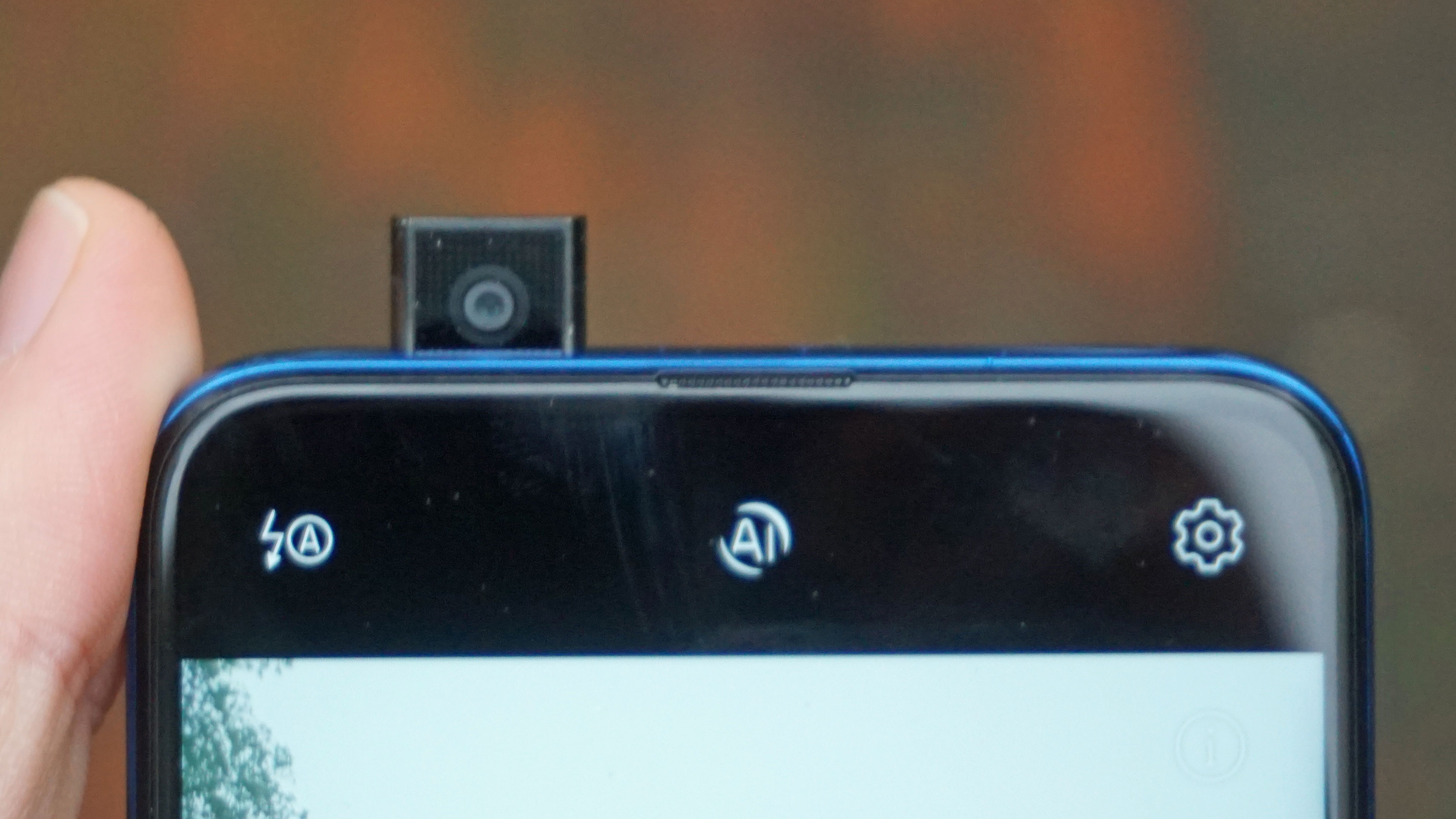
The front-facing camera is 16MP, and it’s not the best front-facing camera we've ever seen, but it will do. The main problem is that the pictures look a little too pale, with washed-out colors and a brightness that’s a little too high. Saying that, most people don’t use enough phone cameras to really notice this difference.
There are a range of effects available on the front-facing camera that we’ve seen before, but they’re still fun to play around with here. Stage Lighting isolates you and gives you a dark black background, perfect for artistic-looking headshots, and some of the modes manipulate lights in the background to create patterns. They are, of course, rather situational, but if you find yourself with distant lights in the background, you can take great pictures.
Camera samples



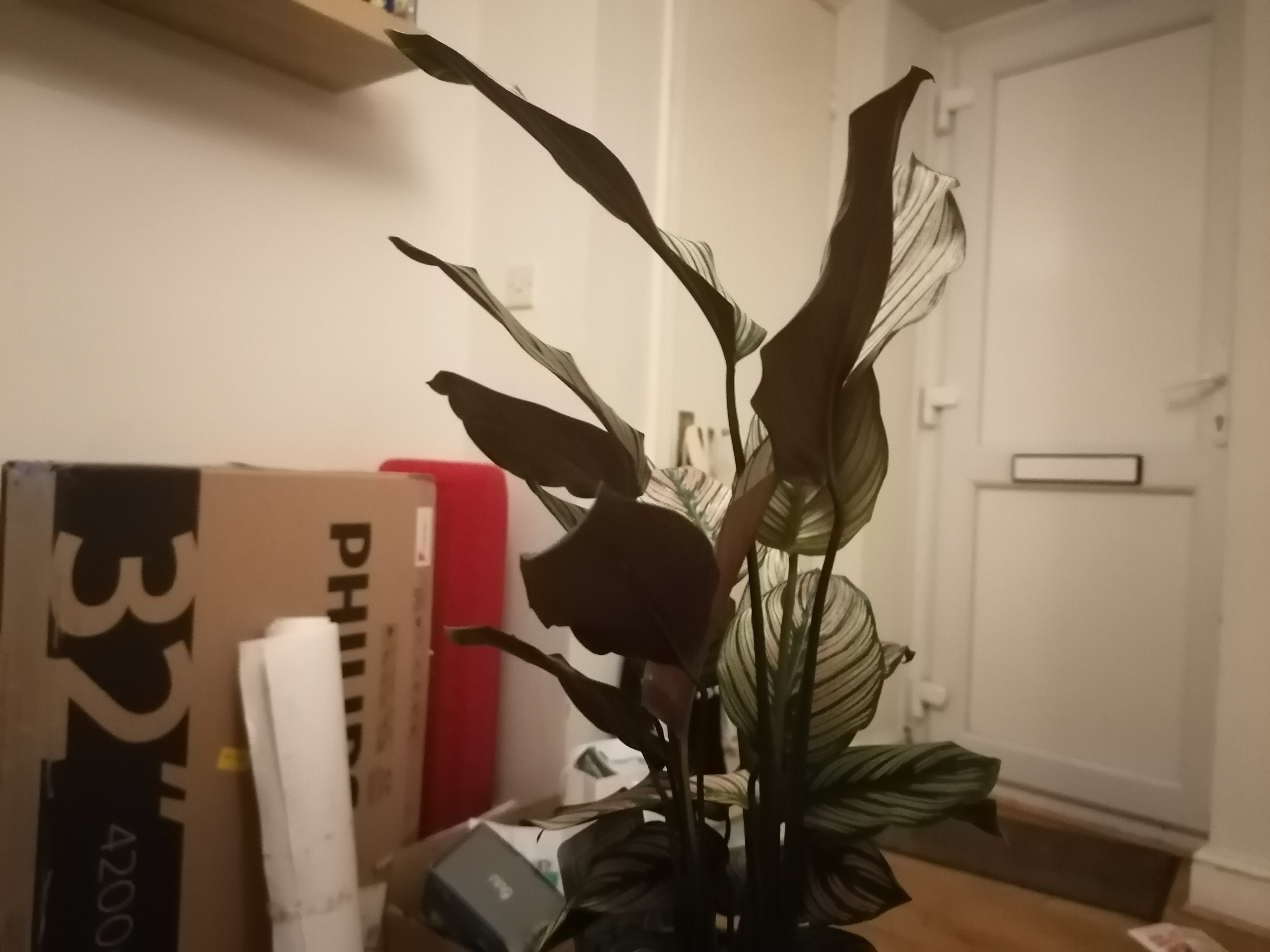

Current page: Battery life and camera
Prev Page Introduction, availability and design Next Page Anything else I should know?
Tom Bedford joined TechRadar in early 2019 as a staff writer, and left the team as deputy phones editor in late 2022 to work for entertainment site (and TR sister-site) What To Watch. He continues to contribute on a freelance basis for several sections including phones, audio and fitness.
